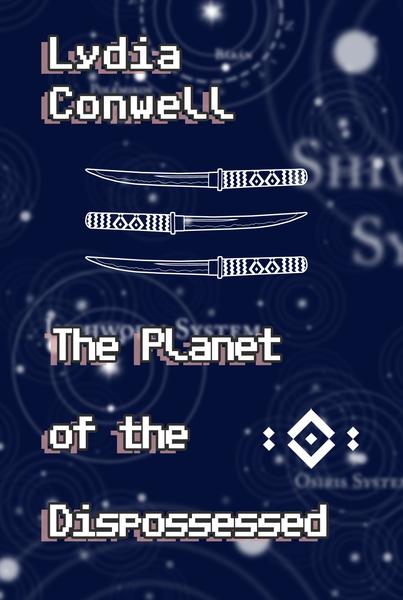The Mechanics of Rosemary’s Baby (Novel)

This has spoilers in it.
I’ve not seen the movie adaption of Rosemary’s Baby and I am glad I hadn’t because it was a pleasure to read this novel with fresh eyes.
It is written is a way that presents you with occurrences that are described with a certain neutrality, without being stressed whether they are either good or bad. This keeps the reader on their toes, to be appalled enough to want to find out what is going on, but it also allows the reader to miss certain details, to not notice some things which prove significant later on.
Stephen King Influence
It is clear to me Stephen King was influenced by this novel. The opening of Rosemary's Baby uses a device where Rosemary’s friend, Hutch, describes the gruesome, violent occurrences that happened over the year in the apartment block they are moving into. This same device is used by King in the opening of The Shining which opens with a character describing a list of unusual occurrences that took place in the Overlook hotel.
This is a great device. You are treated to bizarre, unexplained occurrences that immediately set off alarm bells and prime you for the suspicious behaviour that happens later on.
Then by the end of the Rosemary’s Baby, the novel takes on a slight resemblance to Misery, with Rosemary a prisoner in bed, being drugged, and using her wit and skill to escape. Misery is more or less that part of the book expanded into a full length novel.
Slow burner
The writing style is at times fairly subtle. In fact, because Levin’s style of a slow build-up, I found much of the opening chapters a touch dull. I’m an impatient reader and non-essential story usually bores me. This book has plenty of intrigue, however, enough drama and questionable activity that made me want to keep going, but a lot of the content about dining or redecorating is a little bit dull. Thankfully, it’s not too bad. It isn’t too bloated with beside-the-point issues. I’m just a bit impatient, is all.
It turns out however, that Levin is actually quite an economic writer and most of what is mentioned does turn out to be important later novel. This is important for suspense writing, to take readers by surprise, which Rosemary’s Baby does really well. Seemingly innocent events turn out to have a much greater meaning later on.
Guy’s Secret
One of the ways I was taken by surprise is through Rosemary’s husband Guy. Compared to the Castevets next door, Guy is charming and ‘normal’, yet he displays sudden bursts of a abusive, controlling personality. He is awful, to the point of (seemingly) raping his own wife, yet Rosemary does not receive alarm bells enough to think there is a problem with him.
In fact, much of the book is about Rosemary’s slow realisation of the situation she is in, which the reader partly shares because the reader isn’t entirely sure what is going on. It was clear to me that Guy was part of the Castevet’s plot, but just how much wasn’t clear, and by the end it is revealed that many of the things he did have an alternative interpretation.
Guy’s character works to both appal and shock the reader, but to later astound the reader when it turns out that he too is a devil worshipper. It’s a master-stroke to make Guy an actor, I think. By doing so, Guy is able to be convincingly upset or empathetic or obtuse to lead readers off the sent. Guy works to be a surprise within the very clear, less-of-a-surprise of the Castevets devil worshipping plot.
One baffling part is when Rosemary and Guy spend their first evening at the Castevets. When they get back to their apartment, Guy mimes bolting and boarding the door closed, seemingly thankful that they are now free from the company of the very weird Castevets. He then goes on to say how interesting Roman Castevet was and that he’s going back the next evening to talk some more with him!
One thing I might go back and try to work out is: Was Guy a devil worshipper from the very beginning, or did he convert only after meeting the Castevets?
Coded Abusive Relationship
By making Guy in on the plot, the story becomes very much about an abusive relationship. All the traits are there: gaslighting, lying, manipulation, denial of any wrong doing, etc. The story skilfully takes the reader through the gaslighting and manipulation that subtly increases, so despite you desperately wanting Rosemary to run away from it all, you can see why she doesn’t think she should.
The book also draws attention to the strength yet fragility of a pregnant woman, how, as social creatures, the support and advice from friends and family is hugely important. Rosemary is mostly isolated, amongst a cabal conspiring against her. The few friends she has stand out by showing their genuine support and concern.
Dr Hill’s appearance late in the book is also a great idea. Here is a professional who isn’t in on the conspiracy (at least it is revealed he is) but because of his sexism and condescending medical manner, does the very thing Rosemary asks him not to do: to call Dr Sapirstein and Guy. Storywise, it works to position Rosemary as the crazy one, to actually put doubt in the witchcraft conspiracy, but it also realistically portrays the failings of ‘trusted’ figures of authority, how they fail those (women, people of colour) who ask for help.
Hutch Hero
It was clear to me Hutch and his interest in the bizarre events of the apartment block would become important later on, and, true, he does turn out to be a kind of hero in the story. However, his heroism is only in part, which is a nice touch. He merely initiates dissent via his strong sense of suspicion and points out some of the unusual things, perhaps confirming Rosemary’s niggling suspicions.
Another expression of heroism comes from Rosemary’s friends, who are genuinely concerned and who question the pain she has been enduring and the distinctly unusual advice and practices she has been fed. These outside influences are essential for Rosemary’s journey of rebellion. But they are slight, and inadequate, so the narrative maintains Rosemary’s isolation throughout.
What I love about Hutch is his act of heroism is impaired by an attack on him. It was predictable to me that he’d be silenced before he got to speak to Rosemary, and that is what happens. He is put into a coma and cannot communicate his concerns to her. We are then left with the conundrum: How does a man in a coma communicate his concerns to save the day?
In a final push of defiance, he breaks from his coma to give his nurse a message, which eventually leads to Rosemary reading a book on witchcraft. It’s a just a lovely act of desperation on his part, a strong defiance to be a hero and his heroism is words, ideas. But sometimes that’s all that is needed. When someone is isolated, sometimes all that is needed is for another person to simply believe them.
Unfortunately, he doesn’t save the say, but he does provide vital information to help Rosemary save herself.
Hutch’s coma also alludes to the previous occupant of Rosemnary’s apartment who also mysteriously slipped into a coma, thus revealing how other people have been disposed of after discovering too much about the Castevets.
No ending
My biggest two gripes about this novel is that it is a touch slow to get going (although probably unavoidable due to the writing style); and that it has no proper ending. I suppose you could see this book as the beginning of a much bigger story, of a wider franchise, yet the sequel wasn’t written until 1997, and this novel didn’t make me feel like wanting to continue reading more novels on the story.
So it has a completion, yet doesn’t really resolve the story. This could be because Levin didn’t want to write a book in which included infanticide (even if the baby is the anti-Christ) or perhaps he couldn’t think of a better way to wrap things up neatly.
I felt a little bit let down because it shows the strong character of Rosemary, who has been tricked and abused, finally succumbing to the ways of her abusers. I so wanted something more at the end, but thinking about it, I don’t know what that would be. The book is so carefully written to make it believable that there is a danger of spoiling that by overdramatising the ending.
I like good endings, but it is true good endings are thin on the ground, so I don’t let a tepid ending spoil my enjoyment of a story. But I do wish there was more of a resolve at the end of this book.
Next up, I guess I’ll watch the movie …
Over and out for now, guys!
xxx
You've read this far, surely you want to read some more ...
This is my latest ebook 👇






